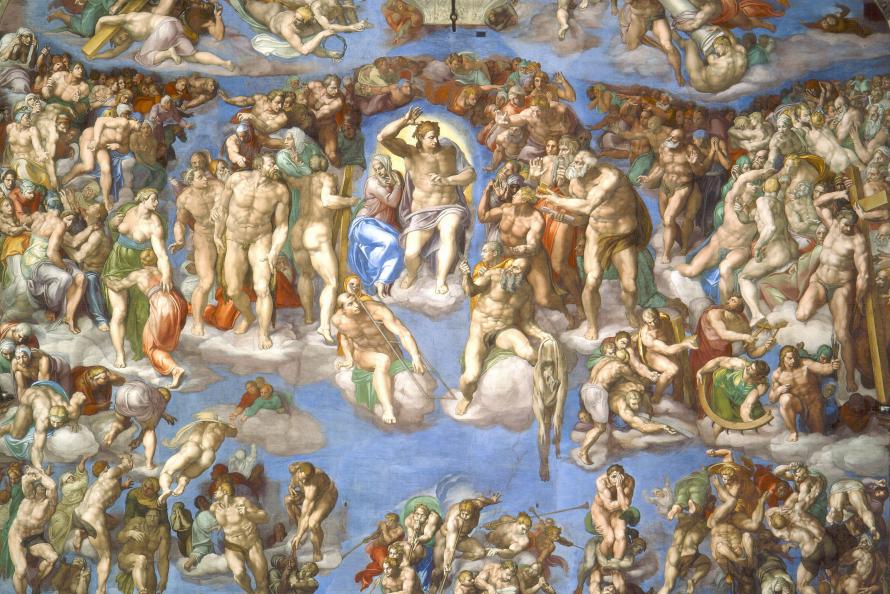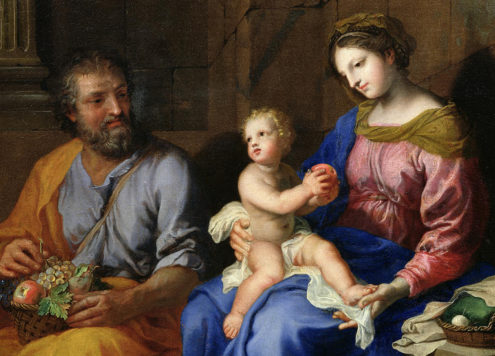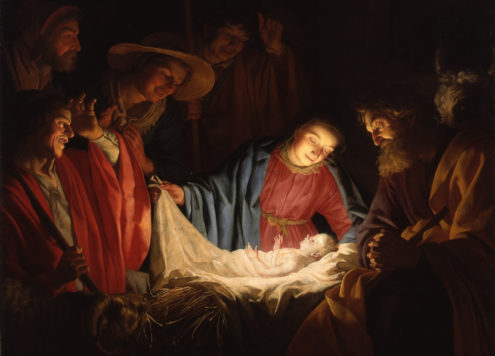Have you ever asked yourself: what do I need to do to be saved? This question could elicit a great variety of answers. Have faith! Attend church! Keep the commandments! Say your prayers! Live a good life! Read the scriptures! Follow Christ! All of these answers are indeed good, but do they really tell you, specifically, what Jesus requires of you to be saved?
In chapter twenty five of Matthew’s Gospel, the Lord spells out, specifically, and in great detail what you need to do to be saved. The parable of the final judgment (Matthew 25:3-46) states that the Lord will separate us into two groups on the day of judgment just as a Shepherd separates the sheep from the goats (Matthew 25:32). The faithful will be at His right, the unfaithful at His left, and to the faithful He will say: “Come and possess the kingdom prepared for you from the creation of the world: I was hungry and you fed me, thirsty and you gave me to drink, naked and you clothed me; I was sick and you took care of me; in prison and you visited me.” (Matthew 5:34-37). These good deeds or works of love are called the corporal works of mercy and, in this parable of the final judgment, the Lord presents them, specifically, as essential for salvation, and as the ultimate standards by which we will be judged on the last day. Thus He concludes: “Whatsoever you did for the least of my people, you did it for me.” To reach out and help the most vulnerable members of society who are hungry, thirsty, homeless, naked, sick or in prison is to embrace and love Christ Himself. These Christ-like actions will guarantee our entry into the kingdom the Lord has prepared for us from the foundation of the world.
St Paul says we are justified by faith (Rome 3:20). This is true. Faith is a gift from God; we don’t merit it; and no matter how many good deeds we perform, we must acknowledge, like the good servant in Luke 17:7-10 that we are only doing our duty. Still, St James reminds us that the gift of faith without good works is dead (James 2:26) and that the person who has faith without works of love ( good works ) is like someone who looks at himself in the mirror and forgets what he looked like. Sure, we are justified by the gift of faith, but it doesn’t stop there. We are saved by faith and good works.
There’s a story about a man who, in an extraordinary act of kindness, decided to hand his business over to his workers. To achieve this, every worker had to sign the agreement. All did, except one man who would not sign his name to an agreement that would benefit him and his family for the rest of their lives. The owner, in frustration, called the man into his office. He placed the agreement on the desk; gave the man a pen; and said: “Sign or your fired.” The man immediately signed the agreement. “That was easy” said the owner, “how come you gave in so easily?” “Well, said the man, “this is the first time it was explained to me so clearly.”
In the parable of the final judgment, the Lord explains very clearly what we must do to enter into the kingdom that was prepared for us “from the foundation of the world.” There are no ifs, ands, or buts about what this entails in the parable of the final judgment. It is simply this: Whatsoever you do for the least among you, you do it to Christ. How could Christians have been so blind as to miss this simple message of Christ? How could they have persecuted each other in the name of Christ when Christ condemned those who persecute one another or those who live by the sword rather than love? There has been and there still exists a real contradiction between what Christ says, and what His followers do. Do you ever wonder why? We need to have the courage to do what He says rather than what man does. In the parable of the final judgment, He explicitly says: “Whatsoever you do to the least of my people, you do to me.”
We will all be judged by this at the final judgment.
Fr. Hugh Duffy











Recent Comments